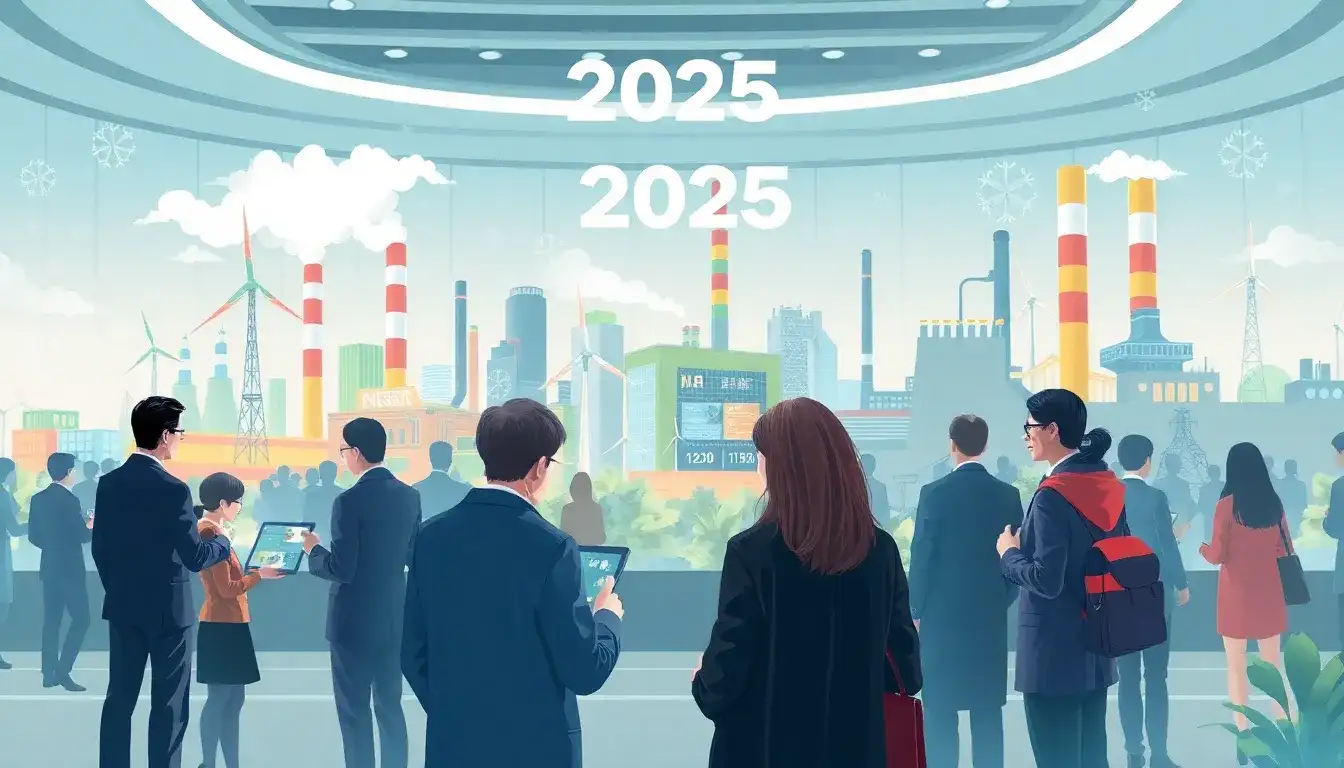
On the afternoon of March 28, during the 2025 Zhongguancun International Technology Transaction Conference, the “Carbon Peak and Carbon Neutrality Technology Forum,” co-hosted by the Chinese Academy of Sciences and the National Energy Administration, was officially held. This forum invited eight academicians and experts from organizations such as the IPCC, the Royal Academy of Engineering of the UK, and leading enterprises in the industry. They engaged in in-depth discussions on “How Artificial Intelligence Supports Low-Carbon Energy Development,” exploring the critical technological pathways of AI in driving the transformation of energy systems and process industries, contributing to the achievement of carbon neutrality goals.
The application of artificial intelligence technology throughout the energy production, consumption, and management chain has the potential to significantly enhance energy efficiency and accelerate the transition of traditional high-carbon industries to green, low-carbon alternatives. This is one of the key points in the innovation chain for future energy structures and plays an important role in promoting the green transformation of energy and supporting the realization of carbon neutrality targets.
Ding Chibiao, Vice President of the Chinese Academy of Sciences, stated that the Academy is actively implementing the national strategic decisions for the “dual carbon” goals, planning ahead and leveraging its strategic scientific capabilities and role as a national think tank. In 2022, it developed and implemented the “Strategic Action Plan for Technology Support in Achieving Carbon Peak and Carbon Neutrality.” Looking ahead, the Academy aims to deepen collaborative innovation with various sectors of society and promote interdisciplinary integration to jointly create a new chapter in low-carbon energy development supported by artificial intelligence.
Ren Jingdong, Deputy Director of the National Energy Administration, emphasized that “Artificial Intelligence+” is a significant theme for the energy sector in the new era and an essential support for advancing the green and low-carbon transformation of energy. The integration and innovation of AI across various fields of energy will play a crucial role in areas such as renewable energy consumption, energy production, and smart energy use, injecting lasting momentum into the cultivation and development of new energy productivity. In the future, the National Energy Administration will work towards building an open, co-constructed, shared, and collaboratively governed “Artificial Intelligence+” ecosystem, fostering a development pattern driven by innovation, forward-looking breakthroughs, and vitality.
During the conference, companies and institutions such as Huawei, ZK Technology Co., Ltd., and the Dalian Institute of Chemical Physics of the Chinese Academy of Sciences shared their strategies for promoting green and low-carbon transformations through AI. Chen Weimin, an independent consultant from Huawei’s oil and gas mining division, discussed Huawei’s advancements in low-carbon energy savings related to new energy vehicles, charging stations, and green electricity conversion. For instance, Huawei has modified its data centers and energy air conditioning systems to employ new green methods that reduce energy consumption and carbon dioxide emissions in the market. Efforts in carbon reduction and energy saving are also ongoing in areas like solar energy storage technology, electric vehicle technology, and infrastructure for ICP technology.
Chen emphasized, “Huawei has a dedicated team in the digital energy sector and has its own products. In addition to Huawei’s ST, digital energy is also a crucial part of Huawei’s business. Our digital energy strategies clearly indicate that we aim to integrate digital technology with power electronics to develop clean and digital energy, promoting a beautiful green future.”
Tian Lijun, Director of Carbon Energy Optimization Product Management at ZK Technology Co., Ltd., presented case studies showcasing the company’s contributions to low-carbon energy. He explained that in a large-scale bio-fermentation enterprise, the energy consumption of the circulating water supply decreased by 18% due to ZK Technology’s operational services. Furthermore, in a major chemical enterprise, even without allowing ZK Technology to implement online closed-loop controls, adjustments based on its recommendations still achieved energy savings of over 2 million yuan in a year.
Researcher Cao Hongbin from the Institute of Process Engineering at the Chinese Academy of Sciences discussed the role of data and AI technology in the efficient green utilization of retired batteries. He noted that for batteries to be recycled effectively, key technologies must be developed. “The core technology involves continuously changing the structural composition of batteries. From a functional perspective, certain elements need to be added, which can become new impurities after battery retirement. To meet the requirements for efficient recycling, we have developed a design based on data and AI-assisted separation agents. By leveraging data from foundational databases and utilizing the properties of chemical substances, we can conduct thermodynamic calculations to gather further data and assist in resolving data issues. For example, in the separation of nickel and cobalt, we filter through databases to form a learning model, and after several iterations, we identify where the core functional groups of the required separation agents are located, facilitating smaller-scale experiments and agent development,” Cao stated.







